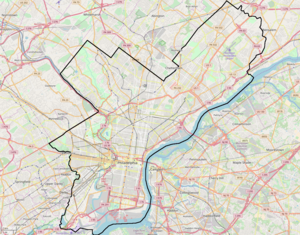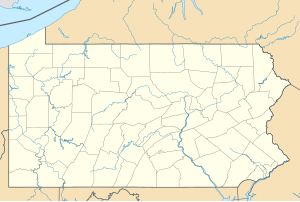S.S. United States

United States docked at Pier 82 in Philadelphia, July 2017
|
|
| History | |
|---|---|
|
|
|
| Name: | United States |
| Operator: | United States Lines |
| Port of registry: | New York City |
| Route: | Transatlantic |
| Ordered: | 1949 |
| Builder: | Newport News Shipbuilding and Drydock Company |
| Cost: | $79.4 million ($733 million in 2016) |
| Yard number: | Hull 488 |
| Laid down: | February 8, 1950 |
| Launched: | June 23, 1951 |
| Christened: | June 23, 1951 |
| Maiden voyage: | July 3, 1952 |
| Out of service: | November 14, 1969 |
| Identification: |
|
| Nickname(s): | "The Big U" |
| Status: | Sold 1978 |
| Owner: | Various |
| Acquired: | 1978 |
| Fate: | Laid up in Philadelphia in 1996. |
| Notes: | The United States changed hands multiple times from 1978 to 1996 for a return to active sea service but no plans came through. |
| Owner: | SS United States Conservancy |
| Acquired: | February 1, 2011 |
| Status: | Laid up in Philadelphia, bought to be preserved as of February 2011. |
| General characteristics | |
| Class and type: | Ocean liner |
| Tonnage: | 53,330 GT |
| Displacement: | 45,400 tons (at design draft); 47,264 tons (at maximum draft) |
| Length: | 990 ft (302 m) (overall); 940 ft (287 m) (waterline) |
| Beam: | 101.5 ft (30.9 m) maximum |
| Draft: | 31.25 ft (9.53 m) (design); 32.33 ft (9.85 m) (maximum) |
| Depth: | 75 ft (23 m) |
| Decks: | 12 |
| Installed power: | 240,000 shp (180,000 kW) |
| Propulsion: |
|
| Speed: |
|
| Capacity: | 1,928 passengers |
| Crew: | 900 |
|
SS United States (Steamship)
|
|
| Location | Pier 82, Philadelphia, Pennsylvania |
| Coordinates | 39°55′4.6″N 75°8′12.8″W / 39.917944°N 75.136889°WCoordinates: 39°55′4.6″N 75°8′12.8″W / 39.917944°N 75.136889°W |
| Architect | William Francis Gibbs |
| NRHP reference # | 99000609 |
| Added to NRHP | June 3, 1999 |
|
|
The SS United States is a retired luxury passenger liner built in 1950–51 for United States Lines at a cost of $79.4 million ($733 million in 2016). The ship is the largest ocean liner constructed entirely in the United States and the fastest ocean liner to cross the Atlantic in either direction, retaining the Blue Riband for the highest average speed since her maiden voyage in 1952. She was designed by American naval architect William Francis Gibbs and could be turned into a troopship if required by the Navy in times of war. The United States operated an uninterrupted schedule of transatlantic passenger service until 1969 and was never used as a troopship.
The ship has been sold several times since the 1970s, with each new owner trying unsuccessfully to make the liner profitable. Eventually, the ship's fittings were sold at auction and hazardous wastes, including asbestos panels throughout the ship, were removed leaving her almost completely stripped by 1994. Two years later, she was towed to Pier 82 on the Delaware River in Philadelphia where she remains today.
Since 2009, a preservation group called the SS United States Conservancy has been raising funds to save the ship. The group purchased her in 2011 and has made several plans to restore the ship which have failed to materialize, one of which included a multi-purpose waterfront complex. As their funds dwindled in 2015, the group began accepting bids to scrap the ship; however, sufficient donations came in via extended fundraising. Donations in the six figures have kept the ship berthed at its Philadelphia dock while the group continues to investigate restoration plans.
Inspired by the service of the British liners RMS Queen Mary and Queen Elizabeth, which transported hundreds of thousands of U.S. troops to Europe during World War II, the US government sponsored the construction of a large and fast merchant vessel that would be capable of transporting large numbers of soldiers. Designed by American naval architect and marine engineer William Francis Gibbs (1886–1967), the liner's construction was a joint effort between the United States Navy and United States Lines. The U.S. government underwrote $50 million of the $78 million construction cost, with the ship's operators, United States Lines, contributing the remaining $28 million. In exchange, the ship was designed to be easily converted in times of war to a troopship with a capacity of 15,000 troops, or to a hospital ship.
...
Wikipedia



